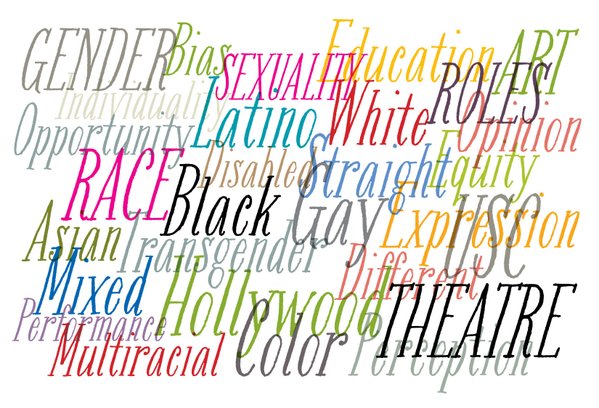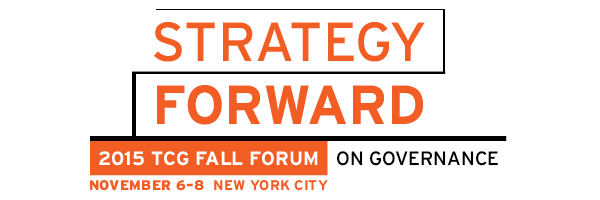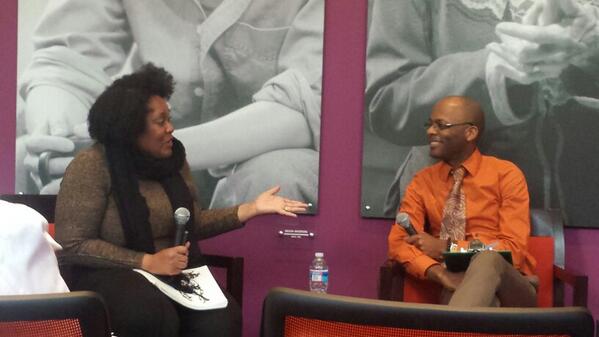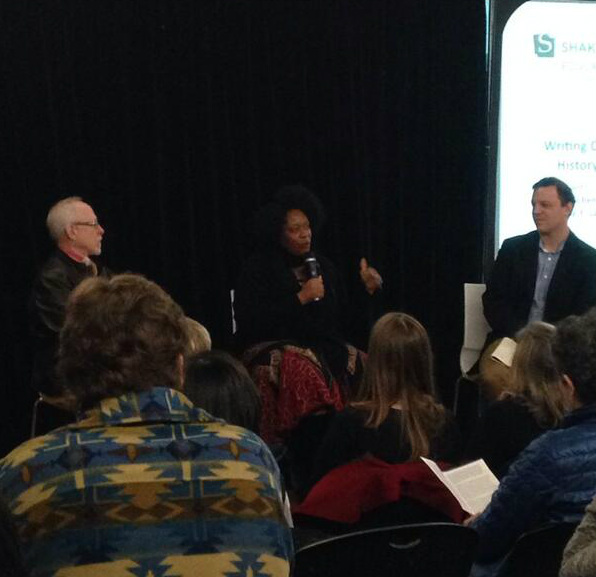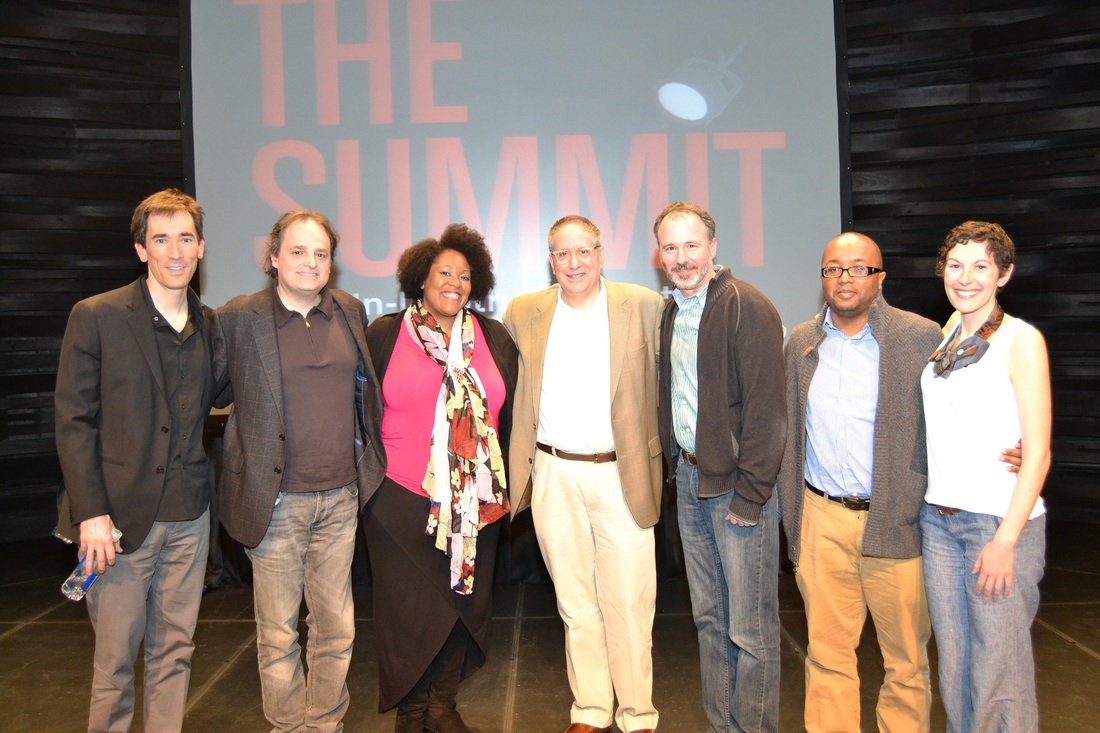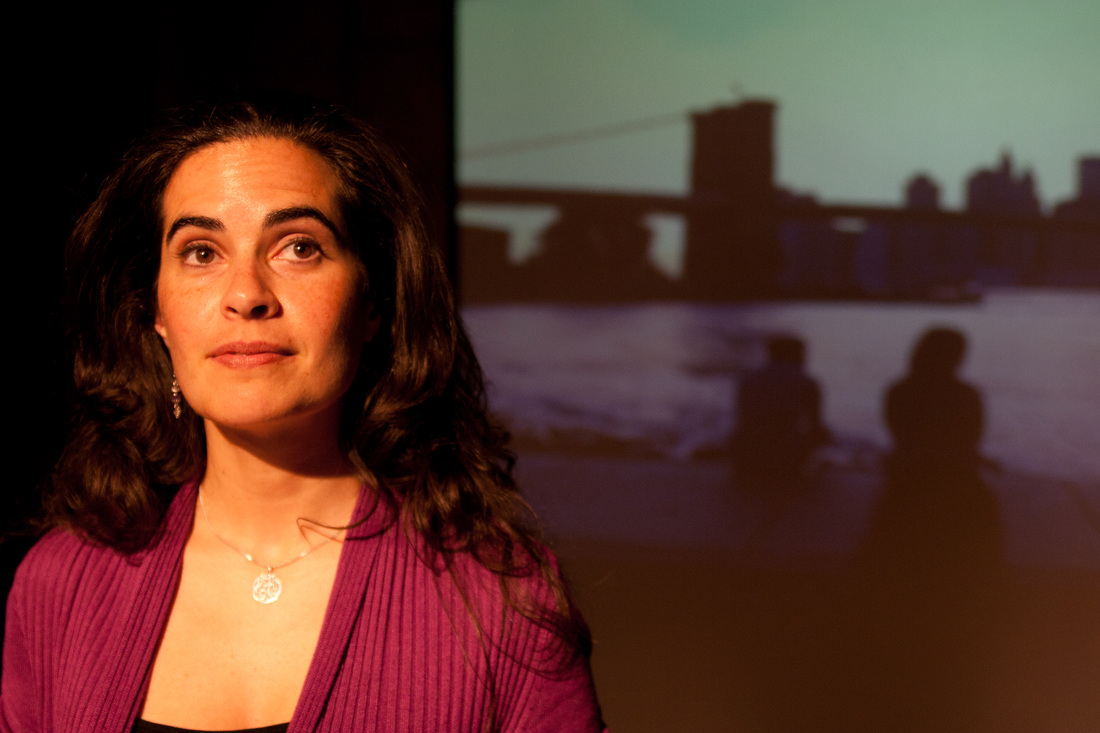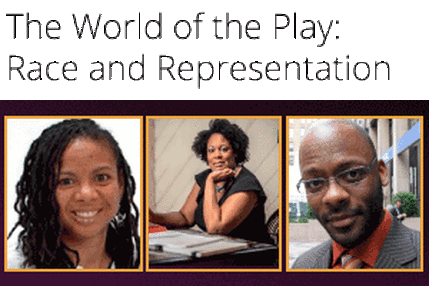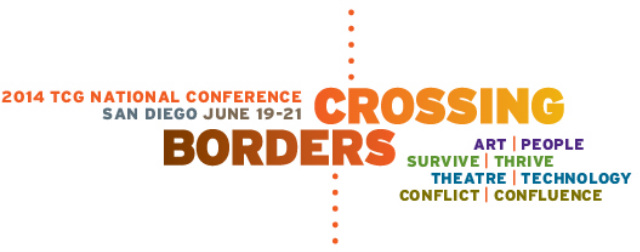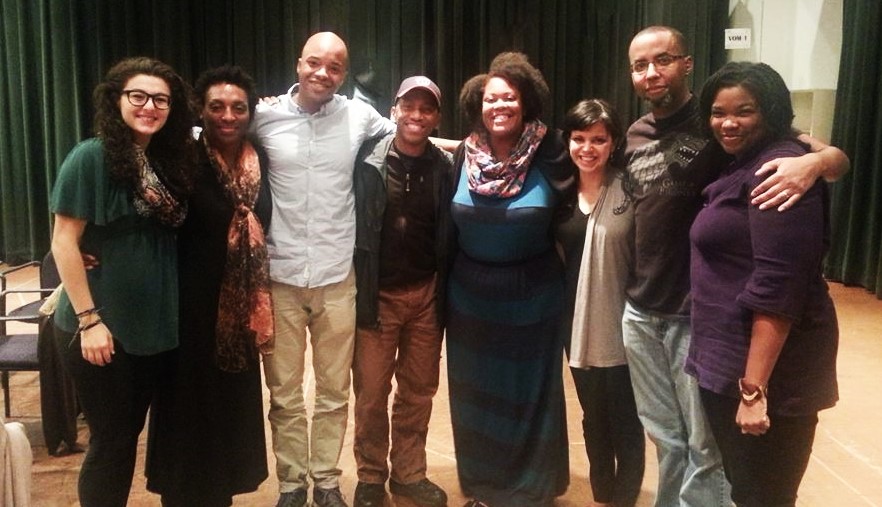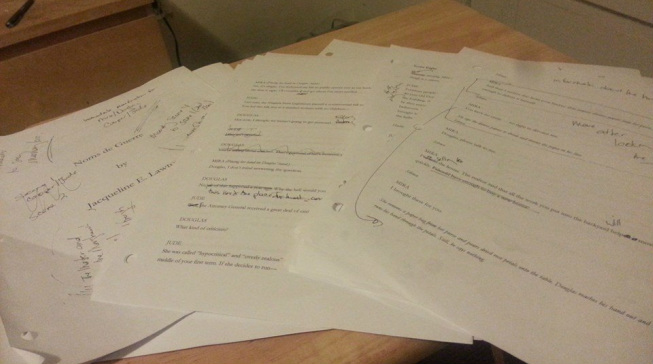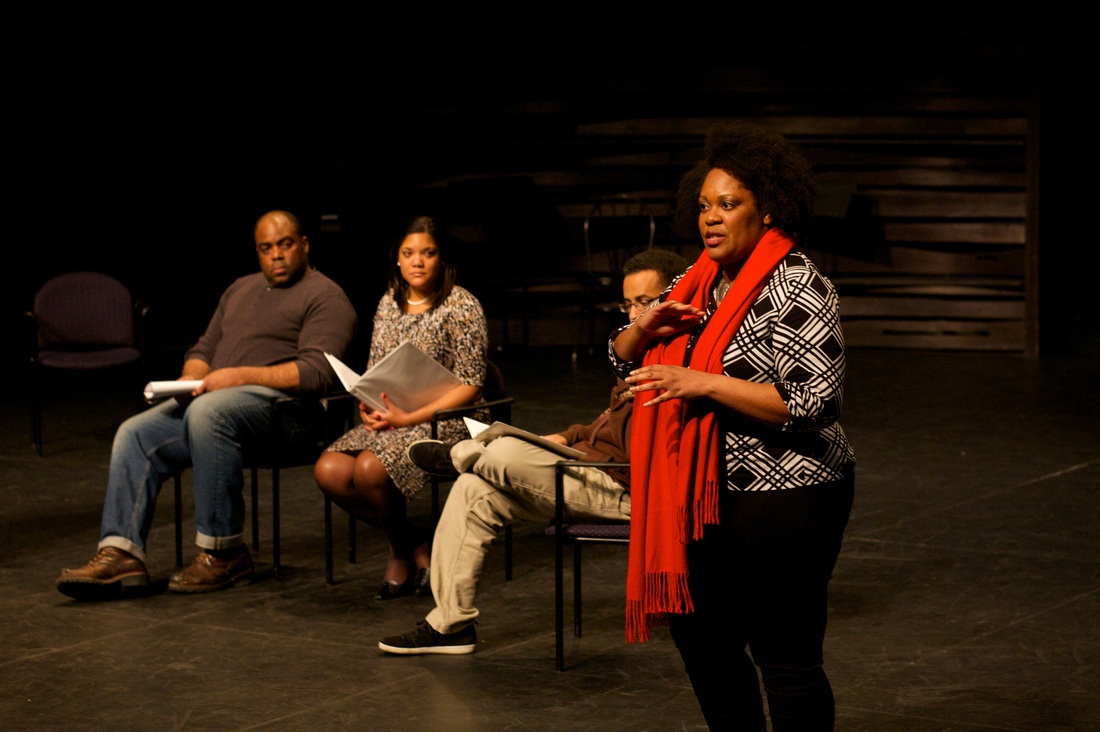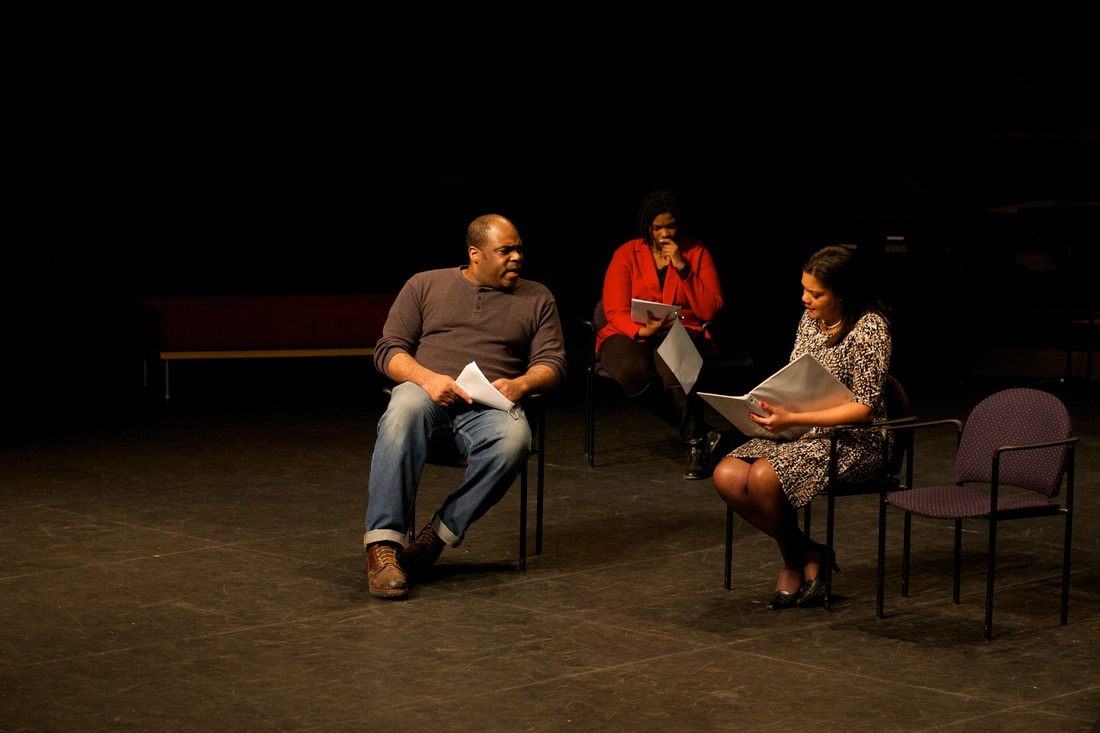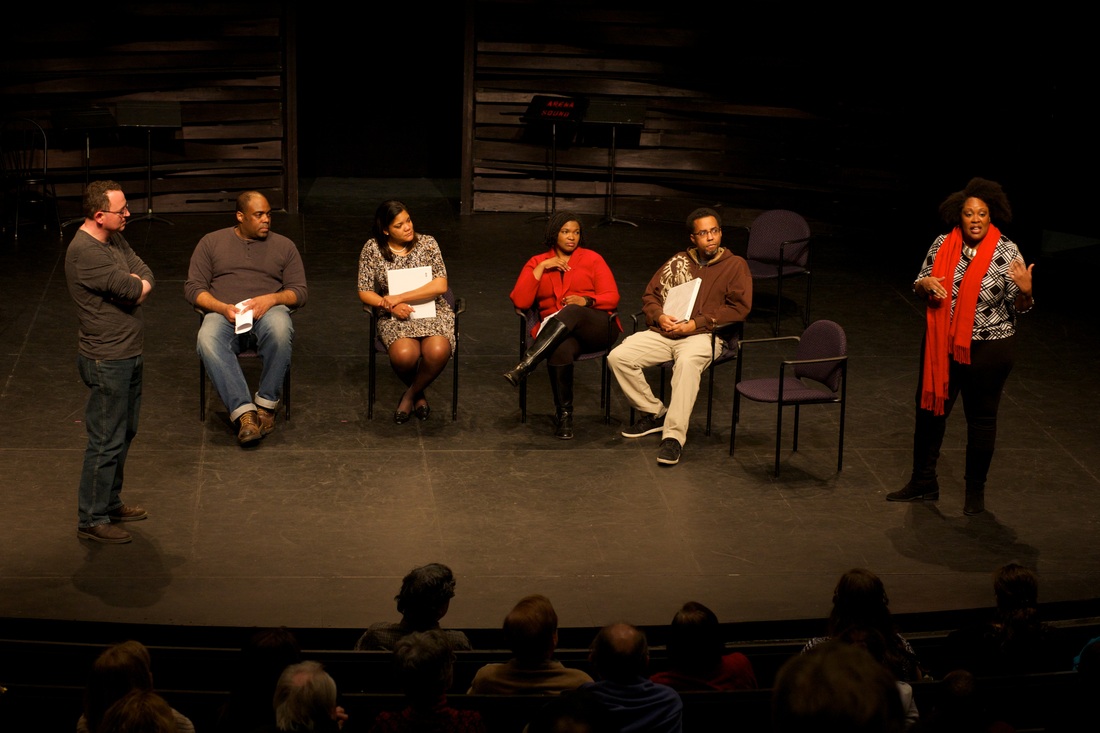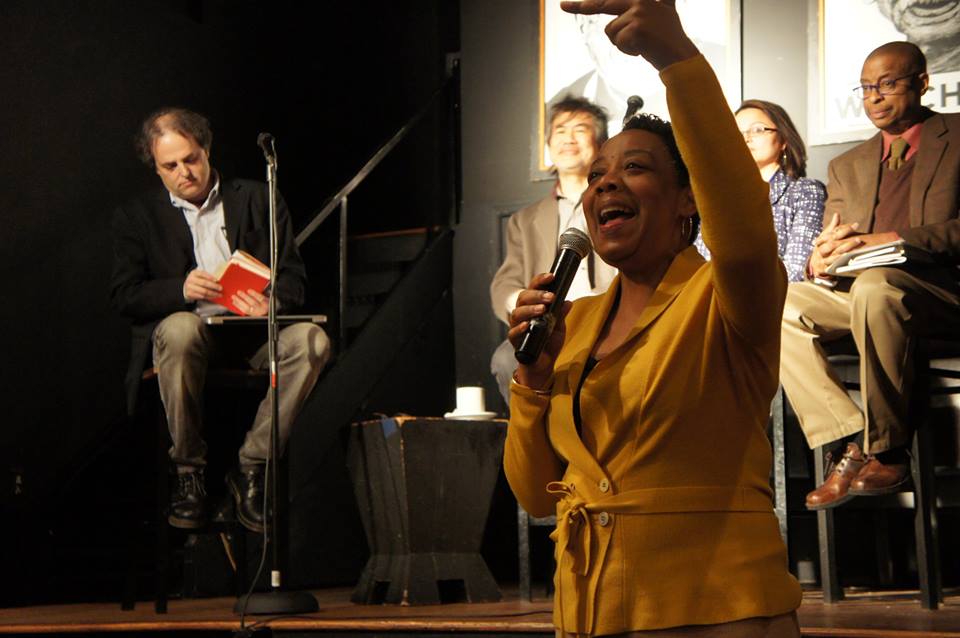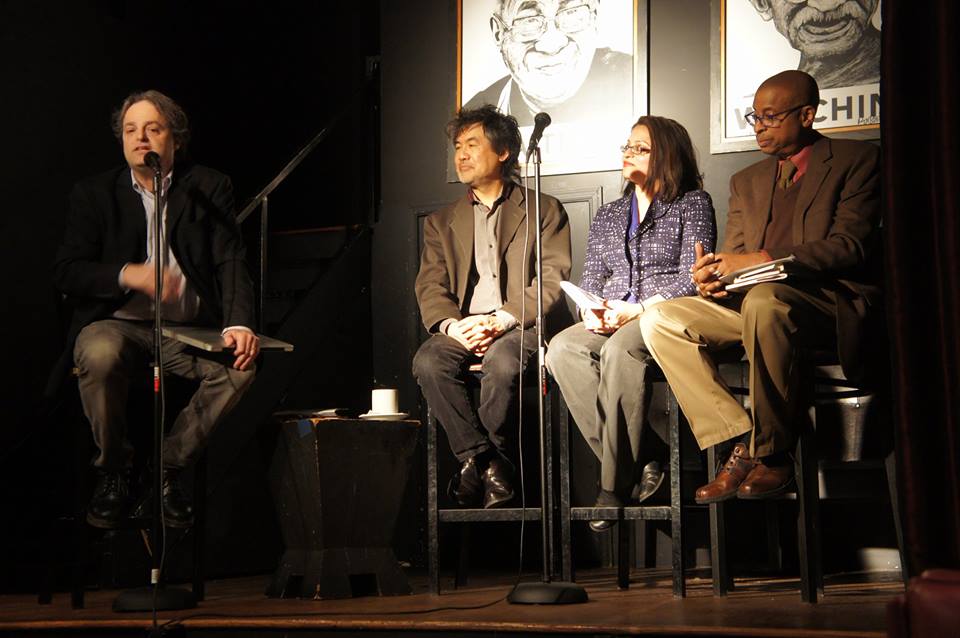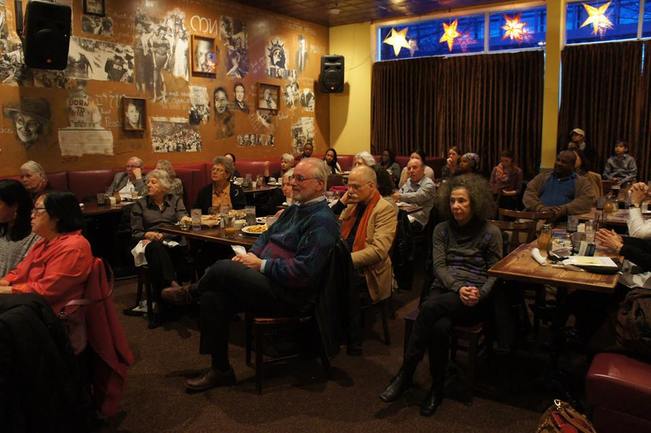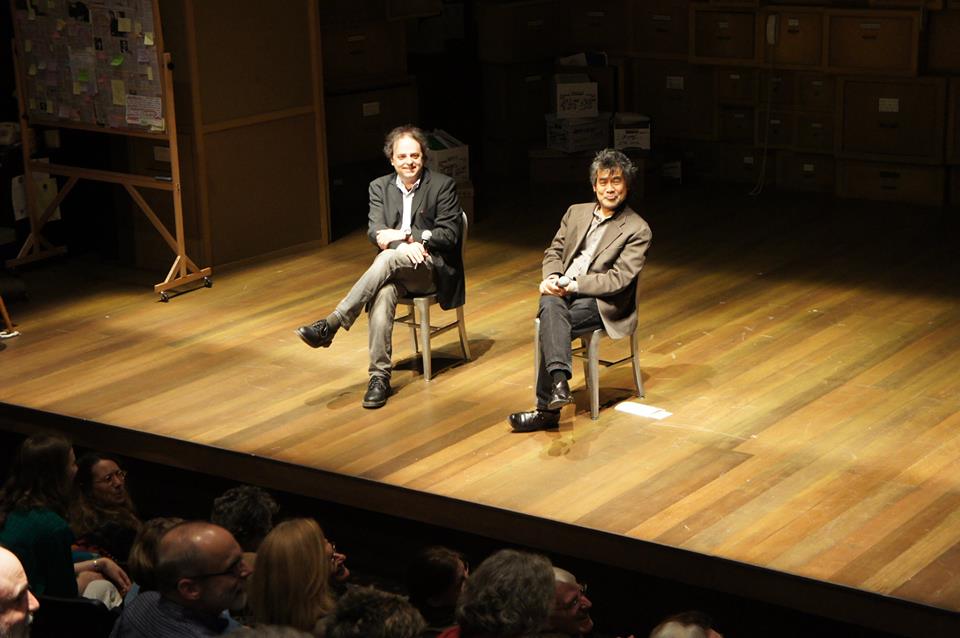|
I'm heading to L.A. tomorrow to engage the faculty, staff and students at the University of Southern California's School of Dramatic Arts in a series of conversations around diversity, inclusion, race, gender, culture and identity. This weekend of events will include interactive workshops, panel discussions and performances and serves as a catalyst to spark a series of conversations and strategies to cultivate and sustain an artistic, innovative and inclusive environment that reflects the evolving communities of the 21st century. If you're in town, I hope you'll be able to join us! Friday, November 13, 2015 12:00–1:30 p.m. Breakout conversations for the Faculty and Staff of the USC School of Dramatic Arts Location: Massman Theatre in the Drama Center (DRC) Noted playwright, dramaturg, scholar and arts advocate, Jacqueline E. Lawton will facilitate breakout conversations with USC School of Dramatic Arts faculty and staff. 1:30–3:00 p.m. Breakout conversations for the Students of the USC School of Dramatic Arts Location: Massman Theatre in the Drama Center (DRC) Noted playwright, dramaturg, scholar and arts advocate, Jacqueline E. Lawton will facilitate breakout conversations with USC School of Dramatic Arts students. 3:00–4:30 p.m. Breakout conversations for Students of Color of the USC School of Dramatic Arts Location: Massman Theatre in the Drama Center (DRC) Noted playwright, dramaturg, scholar and arts advocate, Jacqueline E. Lawton will facilitate breakout conversations with USC School of Dramatic Arts students of color. 6:00-7:30 p.m. An Evening with Alexandra Billings [OPEN TO ALL] Location: Grace Ford Salvatori Hall, Room 106 SDA faculty member Debra De Liso facilitates a Q&A with actress and trans activist, Alexandra Billings (Transparent). Saturday, November 14, 2015 9 a.m.–10:00 a.m. Student Presentations and Film Screening [OPEN TO ALL] Location: McClintock Building, Room 108 Students of SDA will share artistic work based on the themes of diversity and inclusion. Facilitated by Jonathan Muñoz-Proulx (Founding Artistic Director, Arts Bottega, and Vice Chair, Alliance of Los Angeles Playwrights). A screening of Still A Rose, starring SDA alum Troian Bellisario, with special guests, filmmakers Kyle Hasday and Matt Stewart. 10:00–11:00 a.m. Cultivating Multiracial Identity [OPEN TO ALL] Location: McClintock Building, Room 109 An interactive workshop on Cultivating Multiracial Identity, facilitated by Farzana Nayani, a multi-ethnic parent, educator and Advisory Board Member for Multiracial Americans of Southern California. 11:00 a.m.–12:00 p.m. Gender Equity [OPEN TO ALL] Location: McClintock Building, Room 109 Playwrights Paula Cizmar, Julie Taiwo Oni, Jacqueline E. Lawton, Nahal Navidar and more, lead interactive discussions around issues of gender equity in the theatre. Moderated by SDA faculty member Melinda C. Finberg. 1:00-2:30 p.m. Art and Social Activism [OPEN TO ALL] Location: McClintock Building, Room 109 SDA faculty member Rob Adler will lead a workshop on the ability of artists to affect social change. It will inspire critical reflection, community connection and deep dialogue. 2:30–4:00 p.m. Diversity in Hollywood Panel [OPEN TO ALL] Location: McClintock Building, Room 109 Panelists to include William Allen Young (Code Black), Anthony Sparks (writer on NBC’s The Blacklist and professor at Cal State Fullerton), Marlene Forte (The Fosters, Dallas), Brandon Bell (Dear White People) and Stephanie Drake (Mad Men). 4:00-5:00 p.m. A Conversation with Wren T. Brown [OPEN TO ALL] Location: McClintock Building, Room 109 A dialogue on diversity and inclusion in the dramatic arts with Founder/Producer of Ebony Repertory Theatre, Wren T. Brown. Moderated by SDA faculty member Anita Dashiell-Sparks, who serves as the School’s Diversity Liaison. Monday, November 16, 2015 6:00–7:50 p.m. School of Dramatic Arts Diversity and Inclusion Forum for all SDA students, faculty and staff Location: Taper Hall of Humanities, Room 101 Facilitated by Jacqueline E. Lawton. 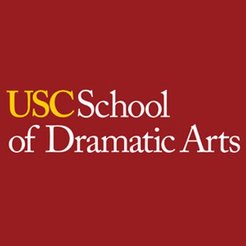 Located in Los Angeles, a city synonymous with artistic innovation and excellence, the top-ranked USC School of Dramatic Arts is a leader in dramatic arts education. The School uniquely blends artistic training in a conservatory environment with outstanding faculty and the full academic experience found only within a major research university. This close-knit, supportive environment offers students the freedom to explore their artistic passions. Through programs of the highest caliber, as well as initiatives that provide access to professional experience, students are prepared for leadership in every facet of dramatic arts. The School’s active production program (more than 20 shows annually) utilizes four theatre facilities, including Bing Theatre, Scene Dock Theatre, McClintock Theatre, and Massman Theatre located in the Drama Center. The School encourages students to gain professional experience and academic credit through internships and has created partnerships with many professional companies, including Center Theatre Group, one of the country’s leading theatre organizations, that offers internships ranging from Audience Development, Management, Casting, Marketing, Costume Shop, Press, Development to Finance and Production. The School also attracts a wide range of guest speakers and lecturers, including some of the most distinguished talents from stage, screen and television. Our graduate programs in Acting and Dramatic Writing are both intensive, three-year programs taught by a faculty comprised of theatre professionals working at the highest level of the industry. The location of the campus, literally in the center of the entertainment industry, makes the School of Dramatic Arts distinctive among colleges and universities in the United States.
0 Comments
On Thursday, I head to New York to take part in TCG's Fall Forum on Governance, which gathers theatre trustees and senior staff from around the country. This will be my third Fall Forum and I remain as interested as ever in the learnings made during these meetings. The purpose of this convening is threefold:
This year's theme is Strategy Forward and our guiding questions will be:
As I think about the work ahead, I'm reminded of a recent Facebook conversation between colleagues discussing transitions in artistic leadership in the D.C. theatre community, which highlighted that the last time a woman was selected to lead a major regional theatre was in 1998 and that was at Arena Stage. Since then, Olney Theatre, Round House Theatre, and Theater J have seen leadership transitions go from man to man. None of them of color. (Studio Theatre went from a woman to a man. Center Stage in Baltimore, MD went from a woman to a man, specifically, to a man of color.) Having just served on a Producing Artistic Director Search Committee at a major regional theatre, I will say that the makeup of your board/search committee and their commitment to Equity, Diversity, and Inclusion are of the utmost importance during transitions of power. They must be committed to the theatre's mission; knowledgeable of issues impacting the local, regional, and national theatre communities; aware of the needs and contributions of the staff; excited by a vision for the future; and not afraid of the great change necessary to make all of this happen. In other words, your fundraising and advisory boards must be peopled with change makers and their investment in your organization must be tied to the health, growth, and sustainability of the community you serve. All of which is easier said than done, of course, but absolutely necessary. We are at a time in our country and world where great change and new ways of thinking are essential for survival. We need a tide of reckoning, a wrestling with our unconscious bias towards race, ethnicity, gender, class, religion, and ability when it comes to leadership and representation. It will be interesting to see what happens at Shakespeare Theatre Company, Signature Theatre, and Woolly Mammoth Theatre Company...as well as other regional theatres across the nation. On this day, I'd like the American Theatre to embrace the principles of freedom, liberty, and independence, but also of revolution by knowing, truly knowing on a blood and bones level, that we can be better and must do better. We can program, hire, foster, and model the movement towards greater equity, inclusivity, and diversity. I encourage theatres to remove the term "risk" when we talk about the plays we program, the people we hire, the artists we invite onto our stages, and the communities we strive to serve. It isn't risky to hire a woman or a man of color. No, it's important that we do so. It isn't risky to program a play by a woman or a man of color. No, it's exciting when we do so. It isn't risky to take an honest assessment of self, staff, leadership, and board; address conscious and unconscious bias against those different from you; and then work to eradicate anything less than the highest standard of inclusion. No, it's critical that we do so. Yes, the work required to achieve diversity, inclusion, and equity is hard. But what about negotiating a better, more just, and equitable life on this planet isn't hard, necessary, and ultimately worth it? As a black woman playwright, I don't have as many privileges as many of those holding the highest positions of power and rank in our industry, but I have more than some others fighting hard to be seen and heard, and I believe in the American Theatre. I believe there is room for all of us. The only thing stopping us is fear. Let's not let fear be our tragic flaw. From Seth Godin, Is Better Possible? "Fear, once again fear, is the driving force here.
If you accept the results you've gotten before, if you hold on to them tightly, then you never have to face the fear of the void, of losing what you've got, of trading in your success for your failure. And if you want to do this to yourself, well, I guess this is your choice. But don't do it to others. Don't do it to your kids, or your students, or your co-workers. Don't do it to the people in underprivileged neighborhoods or entire countries. Better might be difficult, better might involve overcoming unfair barriers, but better is definitely possible. And the belief that it's possible is a gift. We owe everyone around us not just the strongest foundation we can afford to offer, but also the optimism that they can reach a little higher. To write off people because you don't think getting better is comfortable enough is sad indeed." --Seth Godin  On Saturday, April 26th, Boston's StageSource presented the Defining Gender Parity Town Hall. Hosted by Julie Hennrikus and Ilana Brownstein, here are the objectives, inquiries, and themes of the Town Hall: "In this Defining Gender Parity Town Hall, we want to have a conversation about what gender parity looks like for our theater community. Where are we now, and what are our future goals? What does "success" look like, and how do we get there? The Diversity/Inclusion/Gender Parity Task Force report talked about these three topics on stage (actors), back stage (playwrights, directors, designers, technicians, stage managers, crew), in the offices (administration, front of house), in the board rooms (and donor bases), and in the audiences. Gender parity is a conversation for all of these areas, though recent conversations have been around opportunities for playwrights and directors. We will not limit the conversation, though that context is helpful when we think about how to create the change we want (need) to see. There are a number of recent conversations that help inform this meeting. They include Pat Gabridge's blog posts with an overview of some of the numbers around playwrights and directors on New England stages, and Ilana Brownstein's blog post "Rounding Up The Summit"." While wasn't able to attend in person, I watched it live and thought it was an in-depth, thoughtful, and deeply engaging discussion. I don't know how often or in how many different ways we need to keep saying this, but sexism, like racism, is a pandemic issue. Just as we have to exercise our privilege to dismantle white supremacy, we must break down the barriers of patriarchy. We must challenge pervasive assumptions that rely on the notion of race and gender based mediocrity to promote and solidify exclusionary and discriminatory practices. White is not universal; male is not inherently best. We simply cannot thrive in either/or modalities. We are stronger together than apart. You can watch the Town Hall in its entirety below: Watch live streaming video from newplay at livestream.com Race and Representation at Everyman Theatre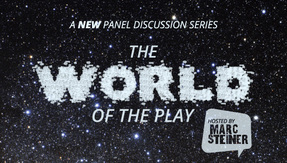 After watching the Defining Gender Parity Town Hall, I took the train to Baltimore to participate in Everyman Theatre's World of the Play panel discussion, Race and Representation: "Our greatest accomplishment. Our greatest shame." It was a powerful, complex, and challenging conversation that asked: "What is the personal cost of being a forerunner - a barrier breaker? Through her storytelling, Lynn Nottage reminds us of those who are marginalized by circumstance, yet fervently trying to assert their presence." Moderated by Marc Steiner, I was joined on the panel by Dr. Kimberly Moffitt (Professor of American Studies) and Otis Cortez Ramsey-Zoe (Lecturer of Theatre Arts). Click here to listen to the podcast. One of the final questions had to do with hope. Marc wanted us to meditate on what issues we thought would be laid to rest in generations to come. Interestingly, and not surprisingly, no one was able to provide a solid answer. For me, in reflecting on this production of By the Way, Meet Vera Stark, I feel that many of the race and gender based socio-economic and geo-political issues that we struggled against in the 1930s, that we marched against in the 1950s, and that we balled our hands and raised our fists against in the 1970s, continue in detrimental ways to this day. And yet...I still have hope that progress, incremental though it may seem, is being made. "Writing Our History" Panel at Shakespeare Theatre Company The next morning, Sunday, April 27th, I took part in the "Writing Our History" panel, which was part of Shakespeare Theatre Company's AsidesLIVE symposium around Henry IV, Parts 1 and 2, which Shakespeare wrote approximately 200 years after the historical events depicted. Moderated by STC's Literary Associate and Production Dramaturg, Drew Lichtenberg, I was joined on the panel by Robert Schenkkan, Pulitzer Prize winning playwright of Broadway's All the Way. "What is the history play," Lichtenberg ask. "People often throw those words about with complete confidence in the fixity of the genre, but when you look closer, 'the history play' becomes a surprisingly amorphous and constantly evolving term of art. I'm eager and excited to hold up models of the history play, both Shakespearean and contemporary, as we attempt to answer this surprisingly complicated and resonant question." Many of the issues I wrestled with during the Race and Representation panel bubbled under this conversation. Weeks later, this question that Drew asked resonates with me still, "What is the ethical obligation of contemporary theatre artists in representing history?" For me, the greatest obligation we have is to tell the stories of our communities, especially those who are marginalized and to speak truth to power. The greatest thing the Shakespeare Theatre Company (and perhaps even the Folger Theatre) can do is to commission writers of color to tell our stories and to adapt the classics for audiences today. This way, these new plays will be one day be the classics that theatres and historians 400 years from now will produce and study for a greater understanding of the generation that not only brought forth the greatest advancement of technology ever known to man, but also set us on the path to eradicating the ills of racism and sexism in this country. The Summit Part Three: Directors and Playwrights at Arena Stage By the time Monday rolled around, I was amped and ready. It was then that I took part in the long awaited and much anticipated final installment of The Summit hosted by Arena Stage and moderated by Washington Post theatre critic Peter Marks. The focus of the evening was on playwrights and directors. I was joined by Rachel Grossman, ringleader of the District’s innovative audience participation troupe, dog & pony dc; David Muse, Studio Theatre artistic director and director of Tribes; frequent Woolly Mammoth director/playwright Robert O’Hara (Antebellum and Bootycandy); Ari Roth, Theater J artistic director and author of last season’s Andy in the Shadows; and D.C.-area playwrights and members of Arena Stage’s inaugural Playwrights’ Arena collaborative writing group Norman Allen (Nijinsky's Last Dance). A few days ahead of the event, Peter emailed each of us and shared: "If you've been following along, you'll know the Summits have been lively, entertaining and even a bit provocative. As you're an especially brainy group, I'm going to try to make the questions friendly but challenging, and of course relevant to the issues facing playwrights, directors and artistic directors today. I think it would be helpful if you all think about the "meta" question of what role theater wants to function going forward in this society. Statistics indicate that a shrinking share of Americans opts for theatergoing as even a once-in-a-while experience. There are also those questions of who the theater you all so diligently strive to put on is for--and whether the playwriting and directorial opportunities are being shared equitably with, for instance, women and people of color." The event was live streamed and so I'm going to let you all experience this event for yourself. After the Summit, I wrote to Peter to thank him for including me and shared my thoughts on why I felt events like this were important:
"With this series, you've given leaders of the D.C. Theatre Community an opportunity to address issues that concern theatre artists locally, regionally, and nationally. From Gender Parity and Diversity and Inclusion to marketing and capitalization to the complex Artist and Arts Organization relationship and the unfortunately reality of our ever dwindling audiences, you are challenging each of us--theatre practitioners and audience member alike--to dig deep, engage, and find new and lasting ways to grow, nurture, and sustain the American Theatre." Yesterday, I was asked by someone inspired by my social media advocacy, "Do you ever feel that you’re ‘beating a dead horse’ when it comes to addressing issues of Diversity and Inclusion in the American Theatre?” As I work on rewrites of a play that may never be produced, here are my thoughts:
It’s disappointing when regional theatres continue to produce all/a majority of plays written by white men that are directed by all/a majority of white men. It’s disheartening that gender parity struggles to be intersectional and inclusive. It’s frustrating that issues of age, class, ability, and sexual orientation live in a land of etcetera. However, I remain hopeful and ever stalwart. I'm encouraged by an increasing number of individuals and theatre companies, who are embracing diversity, working to be more inclusive, and supporting a multitude of voices. What’s more, I am inspired, supported, and guided by so many men and women who are committed to creating spaces for equality and access for all theatre artists. But it’s hard. Hard as hell. Especially right now as seasons are announced and the practice of exclusion rears its ugly, disparaging systemic head. But doing nothing is harder still. So, I never think in terms of losing faith. I think in terms of time. How much time can I devote each day to bring awareness and support of others around these issues. For what little time I have on this earth, I will do all that I can to advocate for progress and change in the American Theatre. 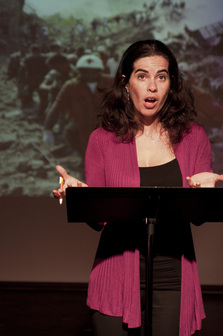 You're invited to attend a free reading of IN THE CROSSING by Leila Buck on Monday May 12th at 7:30pm present by Busboys and Poets, the reading will take place at the Studio Theatre's Mead Theatre. Directed by Shana Gold, IN THE CROSSING was originally developed with Shana Gold, Yuval Boim, Adam Green, Kathryn Grody, Lameece Issaq and Maya Serhan. This reading will feature Adam Abel, Leila Buck, Sara Buffamanti and Kathryn Kates. No reservations required, click here to learn more. In 2006, as Lebanese-American writer/performer Leila Buck was introducing her Jewish husband Adam to her family in Lebanon, war erupted between Israel and Hezbollah, and the couple found themselves caught in the crossfire. Now, several years and a trip to Israel later, they've been asked by Adam's aunt to share their experiences at a conference of the "Society for Intercultural Dialogue and Education." And you're invited to join them. Blurring the line between truth and fiction, theater and town hall, In The Crossing is an edge-of-your-seat live experience that probes the messy intersections of family and politics—the boundaries between us, and what happens when we choose to cross them. IN THE CROSSING has been developed with/at The Public Theater, New York Theatre Workshop, Lark Play Development Center, and Culture Project's Women Center Stage. Playwright's Notes"In The Crossing began as a series of urgent emails written between air strikes that summer to friends and colleagues about what my husband and I were witnessing on the ground in Lebanon - a point of view less widely seen in American media coverage of the conflict. Upon returning to New York, I began crafting a solo storytelling performance about our experience, doing readings across the U.S. with support from the Public Theater, New York Theatre Workshop, Epic, the Lark, Theater J, Queens Theatre in the Park, and a host of conferences and cultural centers from the Brooklyn Museum to Chautauqua Institution, which culminated in a mini-run with Culture Project’s Women Center Stage. In the talkbacks that followed each reading, I quickly realized that the most palpable conflict in the room was that amongst the audience about how I should tell this story – whether it was fair, biased, or even irresponsible - and the questions this raised for me as a playwright and performer. So I decided to write that journey into the play – adding other actors to represent these dissenting voices and my own struggle amidst them to find and hold my own truth. Through a unique and constantly evolving structure that combines storytelling, dramatic scenes, and structured improvisation, the audience is invited to become the fifth character in the play, whose responses, questions, and participation help shape a continually evolving journey. What I love most about theater – the thing that makes it so unique, and powerful, and bold- is the fact that performer and audience are in the same space, at the same time, together, sharing all the discomfort and danger, beauty and possibility of that interaction. Live performance is a precious space particularly in these virtual times. It helps you connect in a different way, and allows for a dialogue that must go both ways. So this play is an invitation: To listen to a story you may not have heard, from several perspectives; to speak up, whatever your perspective, and share your own; and to explore the ripples of that dialogue to more peaceful resolution of conflicts in living rooms and situation rooms around the world." -- Leila Buck About the Playwright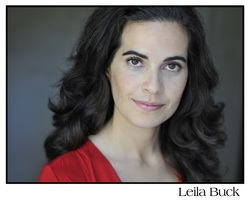 Leila Buck is a Lebanese American writer, performer and teaching artist. Her award-winning solo show, ISite, toured the U.S., Europe and China for more than ten years, and is published in Four Arab American Plays. Her shorter plays include ONE, performed for Epic Theatre Center alongside works by Craig Lucas, Neil LaBute, and Tony Kushner. Her acting credits include the off-Broadway run and international tour of AFTERMATH (NYTW - Drama League nomination) and the Wilma Theatre production of SCORCHED (Barrymore Award). Her theatrical work has been featured in The New York Times and American Theatre magazine, and in Etching Our Own Image: Voices from the Arab American Art Movement. In 2014-15 she will be artist-in-residence at Wesleyan University through Doris Duke Foundation’s Building Bridges grant. Leila holds a Master's in Educational Theatre and Middle East Studies from NYU. She is a member of the Emerging Writers Group at the Public Theater and a Usual Suspect with New York Theatre Workshop, and is currently performing in THE ADMISSION, now through May 18th at Studio Theatre. Click here to learn more. Everyman Theatre: Race and Representation: “Our greatest accomplishment. Our greatest shame.”4/25/2014 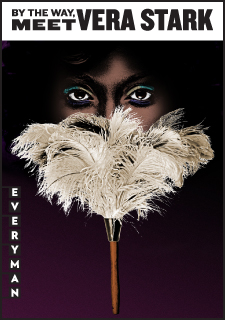 On Saturday, April 26 at 5:00 PM, Everyman Theatre will host a panel discussion on How Women's Voices Changed Our Culture in conjunction with the production of By the Way, Meet Vera Starks by Lynn Nottage. Hosted by radio personality Marc Steiner, panelists will include: Jacqueline Lawton (Dramaturg and Playwright), Dr. Kimberly Moffitt (Professor of American Studies), and Otis Cortez Ramsey-Zoe (Lecturer of Theatre Arts & Associate Artistic Director at Banished? Productions. It's the height of 1930s Hollywood. Film studios are filled with glitz, glamor, and eager starlets just waiting to be discovered. Enter Vera Stark, a determined and headstrong African-American maid to a white movie star. But it turns out that Vera is an actress, too! When the stars align and both actresses are cast in the same Southern epic, the story behind the cameras leaves Vera with an unexpected and controversial legacy scholars will question for decades to come. Deliciously funny and wildly entertaining, Vera Starkuses today's obsession and fascination with tabloids and celebrity gossip to get to the truth behind this mysterious legend of Hollywood. What is the personal cost of being a forerunner - a barrier breaker? Through her storytelling, Lynn Nottage reminds us of those who are marginalized by circumstance, yet fervently trying to assert their presence. Join our next World of the Play panel as we examine the impact of racial stereotypes within the entertainment industry and the effect on our communities and greater culture. Click here to learn more and here to purchase tickets. 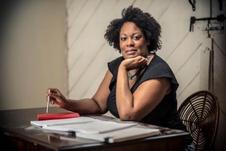 Jacqueline Lawton was named one of the top 30 of the nation's leading black playwrights by Arena Stage's American Voices New Play Institute. She has received commissions from Active Cultures Theater, Discovery Theater, National Portrait Gallery, National Museum of American History, Round House Theatre and Theater J. Ms. Lawton is a member of Arena Stage's Playwright's Arena. 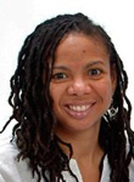 Dr. Kimberly Moffitt holds a Ph.D. in Mass Communications from Howard University. She is a Professor of American Studies at University of Maryland Baltimore County where she focuses her courses on popular culture, intercultural communications and media studies. Her research interests include representations of sports stars and sporting events, hair/body politics, media representations of people of African descent 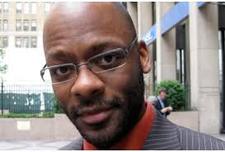 Otis Cortez Ramsey-Zoe is an Associate Artistic Director atbanished? productions, Lecturer of Theatre Arts at Howard University, Series Editor for NoPassport Press's Dreaming the Americas Series, and freelance dramaturg. He has developed new works with such organizations as The Sundance Institute, Kennedy Center, Theatre J, Arena Stage and Center Stage. 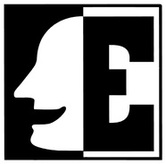 Everyman Theatre is an intimate Equity theatre with a resident company of artists from the Baltimore/Washington area, dedicated to producing quality plays that are accessible and affordable to everyone. Everyman Theatre is a professional Equity theatre company celebrating the actor, with the resident company of artists from the Baltimore/DC area. Founded in 1990 by Vincent Lancisi, the theatre is dedicated to engaging the audience through a shared experience between actor and audience seeking connection and emotional truth in performance. 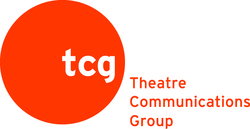 In just two months, the 24th TCG National Conference: Crossing Borders will take place in San Diego from June 19-21, 2014. I can hardly wait! Each year, the conference offers an opportunity to see friends, meet new colleagues, learn from presenters, and engage in dialogue that will help shape the future of the American Theatre. Building on the success of the programmatic arcs from the 2013 TCG National Conference: Learn Do Teach in Dallas, the conference will focus on four main areas of exploration: Art | People: How are relationships changing between theatres and communities? Survive | Thrive: How can we move our financial practices from surviving to thriving? Theatre | Technology: How can the live arts better engage with our digital culture? Conflict | Confluence: How can we have productive conversations about difference? To make these arcs even more intentional and impactful, TCG will host a series of online salons on their blog, the TCG Circle. Over the next couple of months, I'll be curating salon around the following arcs: {Theatre | Technology} How can the live arts better engage with our digital culture? As the rate of cultural change from disruptive technologies increases, its impact is often seen as detrimental to theatre and other live arts. Yet many theatres are harnessing those technologies—through marketing resources, backstage tools and in the work itself—to innovate and strengthen their programming and infrastructure. {Theatre | Technology} sessions will ask big questions about crossing the boundaries between the live and the digital, and trade nuts and bolts tactics for taking advantage of the latest technological advances. {Conflict | Confluence} How can we have productive conversations about difference? Let’s face it: in the theatre field, we disagree as often as we agree, and those disagreements often shed more heat than light. How can we create space for the taboo topics and difficult conversations we need to have: between departmental silos, between funders and institutions, between all our intersections of diversity? How can conflict of ideas lead to positive growth? Participants attending {Conflict | Confluence} sessions will not only learn strategies for managing complexity and difference within their own institutions, but also together reimagine some of the most significant perceived barriers that divide our field. Additionally, I'll be continuing each of the blogs related to TCG’s Diversity & Inclusion Initiative:
If you'd like to contribute to any of these salons–and everyone is invited to participate–please email me and I’ll send you more information. 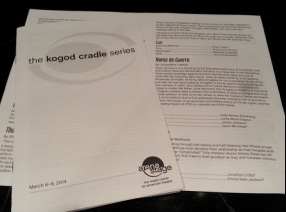 For the past year and three months, I've taken part in Arena Stage's Playwrights’ Arena, the newest new play initiative developed by the American Voices New Play Institute. Curated by Director of Artistic Programming David Snider, I joined fellow playwrights Norman Allen, Randy Baker, Heather McDonald, Danielle Mohlman, and Shawn Northrip for twice monthly meetings. When we first convened in January of 2013, New Play Institute Dramaturg, Jocelyn Clarke, set the tone for our work together in the room (paraphrased from my notes): “We are to serve as each other’s memory for the work we originally set out to do on our respective plays. We are here to champion and challenge each other. We are here to ask questions and listen intently. We are here to dig deeply and honestly into our process and forge ahead even when it all falls apart.” Toward the end of May, we took a three month break to focus on completing our scripts and returned in September. I wrote about our process for Arena Stage's blog Stage Banter: "Our focus is on script development. But it’s more than that. We are investigating our dramaturgical practice and our writing process. We’re exploring our theatrical and creative mindset and exploding assumptions about what is and isn’t theater. We are shaping a philosophy of theater that guides our writing practice and acts as a point of entry into our story telling. We are here to experience the ecology of playwriting — we are learning who we are as playwrights in relationship to our work and process to each other and to the American Theater. Each session allows for an intense, focused and rigorous practice of inquiry, writing and study. I leave each meeting exhausted and rejuvenated all at once, which is really quite thrilling. I feel so fortunate to be able to spend a year dedicated to communing with such exceptionally talented and diverse playwrights. After only five months together, I felt that I had become a stronger and more confident writer. What’s more, I had a renewed sense of love for the theater." We returned in September for further development and workshops with actors. Hearing the play aloud and embodied by actors was essential. It's important to discuss a play, but there's only so much development that can happen in that space. Also, it helped that this cast came into the room so prepared. They asked smart questions and offered invaluable insight from their perspective. Our time together culminated in a two day open rehearsal that was presented as part of the Kogod Cradle Series. Jocelyn Clarke served as my dramaturg and led the work in the room. In the course of 48 hours, I slept for four of them and wrote nonstop. It was the most exhilarating, inspiring, encouraging, deeply satisfying, and productive experiences of professional career so far. Now, below you will find a few things about NOMS DE GUERRE, including a recent blog post, an interview with DC Metro Theatre Arts' very own Joel Markowitz, and wonderful photos from the open rehearsal by Ryan Maxwell. Please enjoy! Thoughts on Noms de GuerreNoms de Guerre is a play about war … about the cost of war, the price of freedom. I come from a family of soldiers. My grandfather was in the Army and served in the Korean War. My mother and father were also in the Army and served during the Vietnam War. My brother served sixteen years in the United States Air Force. My sister has worked at the Department of Veterans Affairs for five years. Noms de Guerre is a play about war … about honor and glory, pain and sacrifice. Originally, this was meant to be a play about the War on Women and our ever-changing role in society. I wanted to write about a conservative Black woman whose political decisions hindered women’s reproductive rights. Ultimately, I write to make sense of the world. In the wake of what’s been happening to women around the world and in America, I wanted to understand what could possibly drive a woman, a politician, to do this to other women. The play was to follow the evolution of a friendship between two women, Mira and Jude. Over the course of seventeen years, we would have seen certain events play out in their lives that addressed these larger issues. But despite many valiant attempts and wonderful conversations with my smart, talented and fearless fellow playwrights at Playwrights’ Arena, I found that I couldn’t write that play. Instead, this other story, this story of war … about how a broken soldier returns home and disrupts the lives of his wife and her best friend, needed to be the driving force. So, after speaking with Arena Stage’s brilliant, discerning and passionate dramaturg Jocelyn Clark, I set forth to tell this story. And in the most haunting, exquisite, and terrifying way, these other issues have come through, but now on more personal and deeply intimate levels. Noms de Guerre is a play about war … about its necessity and its waste, about the impact of war on returning veterans and their families. The first man I ever loved played the French horn, graduated from high school a year early, joined the Army, survived boot camp, and killed himself two days after my birthday, one week after holding me in his arms for the last time. The second man I loved left me to join the Marines, married someone else, had two children, did two tours in Iraq, and then returned to me for a year and half before parting again … this time to Afghanistan and to a woman more suited for military life. The third man I loved was born into a civil war that lasted on and off for the first thirteen years of his life. He longs to return to his home country, but cannot owing to its continued state of uncertainty. Each time Lebanon appears in the news, I write to him and ask after his family. Noms de Guerre is a play about war … about broken rules of engagement and the lengths the government will go to stay on mission. When I first spoke about the play to my father, he told me about a flashback he had experienced more than thirty years ago. It was the middle of the night. He found himself suddenly on the front porch with a gun in his hand. He asked me if I remembered this. I told him that I didn’t. I was probably four at the time and fast asleep. He then told me that the only thing that saved him was talking to his father about all that he had seen and done for his country. Noms de Guerre is a play about war … about heroic deeds, acts of horror, and the strength and courage it takes to speak truth to power. I’ve dedicated this play to my father. (Originally posted on Arena Stage's Stage Banter.) Playwrights Arena InterviewJoel Markowitz: What or who first inspired you to become a playwright? And why?
Jacqueline Lawton: Growing up, I always loved writing plays and poems and short stories. I did so mostly to entertain my little sister, but also to escape poverty and racism. Life was a little less harsh and vastly more entertaining in my imagination. I even wrote a passionate novella when I was eighteen. My sister found it a few years ago amongst some other long ago lost treasures and gave it to me. It’s a good thing she did, because my father no doubt would’ve had it published in the local newspaper by now! But I was inspired to become a playwright, as in earn an MFA and make a profession out it, by my former professors Amparo Garcia Crow, Ruth Margraff, Omi Olono Osun, and Jill Dolan. These women are brilliant scholars, extraordinary artists, and passionate advocates for gender parity, racial equity, and social justice. They believed in me and my voice as a writer, and showed me that I could do great good in this world from my work. As a playwright, I could address issues that mattered to me and also write parts for women and men of color, which were sorely lacking in the cannon of plays being taught. JM: Now, tell me about your play being featured in Arena Stage’s Playwrights’ Arena Showcase? JL: Ultimately, Noms de Guerre is a play about war and its impact on the lives of soldiers and their families. I spoke about the play at some length here on Arena Stage’s blog, but here’s the synopsis to further pique your interest: Noms de Guerre is a haunting, lyrical and passionate story of friendship, love and politics. Attorney General Mira Hamilton is a rising star in the Republican Party, whose campaign against women’s reproductive rights puts her at odds with her long-time best friend, Jude, an award-winning, truth-seeking Broadcast Journalist. At home, Mira struggles to run a campaign for Governor and help her war hero husband, Douglas—a former Marine Gunnery Sergeant and member of JSOC, who battles terror-fueled delusions and flashbacks, adjust to civilian life. When Jude discovers that Douglas is linked to a massacre of Afghan civilians, Mira is thrown into a whirlwind of political intrigue and must decide whether to hold on to her career or save her husband. JM: What do you hope audiences will walk away thinking about after experiencing your work? JL: With this play, I’m addressing three big ideas in deeply personal and intimate ways: (1.) the ever-changing role of women in society, (2.) the impact of government and military policy on human rights, and (3.) the damaging impact of PTSD on veterans and their family. I hope folks become more aware of these issues and consider how they resonate in their own lives. JM: How has being a part of Playwrights’ Arena helped you as a playwright? JL: Having the support of Arena Stage, David Snider, and Jocelyn Clarke has been wonderful. It’s been empowering to be a part of an intimate group of playwrights. Interestingly, being a part of this group reminded me of how much I love working with playwrights and why I love being a dramaturg so much. For the past few years, I’ve shifted my focus away from dramaturgy in order to focus on the growth and development of my own plays. Honestly, I miss it and was so glad to be asked to serve as dramaturg on browsville song (b-side for tray) by Kimber Lee, which will receive a world premiere production as part of Actors Theatre of Louisville’s Humana Festival of New Plays.JM: What did you learn about your writing process? JL: I became more aware that my writing rituals are rooted in discipline. They are as meditative and focus-driven as they are inspirational and process driven. Also, I became even more aware of how important solitude is for me. As lovely and inspiring as it was to meet regularly, I would not have written this play without time away from our meetings. Also, that I rely heavily on my dramaturg for process and can only take a play so far before needing to hear it read aloud with actors. What’s great is that Playwrights Arena allowed for all of this to take place. JM: What else are you working on now? JL: I’m working on an adaptation of The Wizard of Oz for Adventure Theatre MTC next season and a ten minute Biblical feminist play about Miriam and Tzipora for Theatre Ariel to be featured at the Women’s Shabbat at Germantown Jewish Center in April and again at Salon Ariel’s 10×8: Food, Family and Philosophy Festival in Mary. I’m also working rewrites of The Hampton Years ahead of a reading in Miami later this year and a new full-length play, Among These Wild Things, which revolves around an interfaith/interracial couple, Nigel and Lee. When Nigel loses his beloved grandfather and learns more about the lengths his family went through to survive the Holocaust, Lee struggles to negotiate the introduction of religion into her life. It’s still in the early dream stages, but I’m so excited to get started on it. (Originally posted on DC Metro Theatre Arts.) A Special Edition of ACTOR: A Conversation with David Henry Hwang and Others about Race and Identity2/13/2014 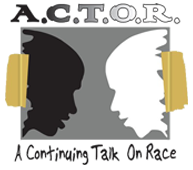 On Saturday, February 1st, Busboys and Poets presented A Special Edition of ACTOR (A Continuing Talk on Race): Conversation with Tony Award-winning playwright, David Henry Hwang about his new play, Yellow Face. Moderated by Theater J's Artistic Director, Ari Roth, additional panelists included E. Ethelbert Miller (poet, educator, and literary activist) and Deepa Iyer (Executive Director of SAALT: South Asian Americans Leading Together). The event was billed as a candid conversation about Race and Identity. 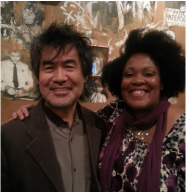 I arrived early for a late lunch with Theater J council member Elaine Reuben. The food is so great, but Busboys and Poets doesn't take reservations. So, I wanted to get good seats up front to take notes and a few photos. David was gracious enough to take a photo with me. I've long admired his work. M. Butterfly cracked open my world. Meeting him and getting to listen to him speak was an absolute highlight. Busboys and Poets Marketing and Events Director, Pamela Pinnock greeted each of us with a warm and rousing welcome. She told us that what made this event even more special was that it was taking place on Langston Hughes' birthday and on the 9th anniversary of Busboys and Poets. We began by paying homage to Hughes and his humble, but ambitious beginnings. While working as a busboy in Washington's Wardman Park Hotel, Hughes gave three of his poems to Vachel Lindsay, a famous critic. Lindsay was impressed by what he read and introduced Hughes to publishers and thereby launched the young poet’s career. Hughes would go on to be a noted writer of novels, short stories, poems and plays. Hughes traveled throughout his career and spent a great deal of time in both Japan and China. This got the attention of the U.S. Government, which was concerned about the communist activities of its citizens, and so Hughes was followed and spied upon during his travels. He captured his experience in two memoirs, The Big Sea and I Wonder as I Wander. Both are excellent, informative and entertaining reads. Ari Roth then introduced the panelists and the specific focus for the conversation. We were there to consider the role and responsibilities of an artist to his or her community. Part of that conversation included the joy and tensions that may arise when telling stories of one’s community. Given that February 1st marked the start of the Chinese New Year and Black History Month, there was a desire to have a Black and Asian cultural dialogue, and even address rising racial tensions. Where I see a competition for resources in the theatre community is around season planning. There is an unspoken, but blatantly practiced one slot rule in diversity planning so that either a play by a woman or a person of color will be presented. Theater J defies this rule as do a handful of theatres in the D.C. area. Ari’s first question invited the panelists to contextualize race relations in the Asian American communities from the 1990s to now: David shared that when he first started writing he had no particular sense of identity as an Asian American. The term “Oriental” was the terminology of the time. He started writing because he wanted to be a playwright. He felt that being Chinese was an interesting detail. He was a student of Sam Shepard and Marie Irene Fornes. He was guided to write from his subconscious and found that issues around immigration and identity began to emerge. When thinking about the relationship between the artist and the work, he feels that the artist invents the work, but the work also reinvents the artist. The work transformed him into the artist that he is today. He writes in a space of identity politics. Growing up, he felt that Asian Americans spent a great deal of time trying to be Americans. That they wanted to be American first versus the root culture that society framed on them. For him, Yellow Face is an opportunity to look back on what is now called multiculturalism. This is a comedy that allows us to laugh at it; to acknowledge the complexity and nuance of the Asian American identity; and to recognize the significance of a unified identity. Yellow Face also considers the ways in which the Asian American identity is useful and when it isn’t. Deepa shared that she was born in India and grew up in Kentucky before moving to D.C. She feels that the role of artists in the social justice movement is a critical one. Also, that the Asian American identity is more unified in a political context than it is in a cultural context. She reminded us that after 9/11, the South Asian community received a lot of backlash in terms of racial prejudice and religious bias. Many people associated South Asian with the Middle East, Islam and terrorism. She wants us to pay attention to power shift in the social and political dynamics as the U.S. becomes a minority majority demographically. We must also pay attention to relationships between people of color. She concluded by reiterating how much communities rely on artists to tell stories of their community. Otherwise, we risk silence, misinterpretation, exaggeration, and exoticism when our stories are told by others. Ethlebert spoke about Anu Yadav’s work. He referenced Meena’s Dream, which received a world premiere at Forum Theatre and is about to go on a national tour. In Anu’s own words, Meena’s Dream is about “a nine year-old girl whose mother is sick and can’t afford the medicine she needs. She has to face her fears, and use her imagination not just to cope or escape, but to bravely keep envisioning a world where all of us can have enough.” Ethelbert also spoke about Capers, an earlier one woman show based on interviews, interactions, and observation about the impact of gentrification/revitalization of an impoverished community. When I interviewed Anu, she spoke about the transformative power of writing and performance: “I was really inspired by performance artist Dan Kwong. I took an autobiographical performance writing workshop with him and Gary San Angel at Asian Arts Initiative in Philadelphia in 1999. It was only three weeks, during college. It was a tremendous experience. I had always loved theater, enjoyed it in whatever form it was available to me, but I also felt isolated or some sense of “I don’t belong here unless I translate myself” to the dominant culture. I didn’t see people who looked like me on stage, with the kinds of experiences that I connected to. That workshop was one of the first times that, rather than trying to fit into a role, I could shape the role by writing it myself, that my experience and my mind could lead in that way. It changed me. It was a hugely transformative experience to know that my experience as a human mattered enough to write down and share with an audience. I realized the power of sharing one’s story through theater as a political act. It helped me learn how to share more of myself in the world beyond the stage.” Ari asked David to speak about the role of humor and satire in their stories. David explained the premise for writing Yellow Face. He chose to write about himself because that way he was only making fun of himself. “If you’re going to having a conversation about race, you have to be willing to make a fool of yourself and make mistakes.” Ari then asked the panelist to speak to the solidarity and friction between artists of color. This was the most powerful moment in the conversation. The panelists addressed the fact that owing to our country’s history, we have to locate the space where we are internalizing racism against African American people in this country. As a society, the only way for us to build solidarity and heal is by dismantling stereotypes and perceptions. There will always be moments of harmony and tension, but we have to come together as communities of colors and work in solidarity to stand up against racist policy. David then spoke about living in Fort Greene in Brooklyn, a neighborhood that exemplifies gentrification. It was once considered very dangerous, but is now very hip part of Brooklyn. There is a diversity of races and careers, but there isn’t much class diversity. There are many tensions that still exist right now. How do we address income inequality. Ethelbert spoke about growing up in the Bronx. He grew up in a diverse area, but then moved into Saint Mary’s project. He went from an integrated school to an all Black school. His family was West Indian. He traveled from the South Bronx to Howard University. He didn’t have the black middle class/double consciousness angst. Also, his mother did not allow Ebony in his house. He then explained that we see the greatest growth and impact of diversity in our foods. He spoke about going to a baseball game. At first, it was just hot dogs, then hamburgers and pizza appeared. At some point, tacos showed up offered and now you can buy falafel and all kinds of healthy, organic, vegan food. This is diversity. Deepa spoke about living in Silver Spring. She’s noticed that there is a large Latino community, but it’s not as economically diverse. In Prince George’s county, there is an influx of refugees. This got her to think again about the role of artists. She grew up with people who had particular opinions or perceptions about her family based on the Simpsons and other television shows. Artists of color are still not given the opportunity to tell our stories. We have Katy Perry and How I Met Your Mother appropriating the Asian Culture for entertainment. But then we do have Mindy Kalin who has her own show. Still, the continued and persistent absence of stories by artists of color forces her to ask, “Is the white man’s truth bigger than ours?” At this point, Ari opened the conversation up to audience: An audience member asked: How do you feel the roles of words and language further or even hinder the discussion of race? David shared that one generations breakthroughs are often the next generations stereotypes. Stereotypes are bad writing. They are 1 and 2 dimensional characters that don’t appear human. Ethelbert reflected that as a poet, the power of his words exist all over the city and have traveled the world and even interpreted into other languages. He went on to speak about the importance of keeping the words of our great writers of alive. Too often, we reduce writers who have a large body of work to one poem or one novel. Or we don’t look at the full body of a writer’s life, and we hold on to one moment. This is dangerous and incomplete. He said, “Language is about communication and the ability to change our lives while we’re here.” This was a powerful and urgent moment. He went on to speak about how we should honor and uplift the work of our great writers. Simultaneously, we need to be taught about the criteria for what is good and the standard of excellence. Deepa shared that we are either trying to get people to include us (people of color) in the conversation about racial equity or we’re pushing back again words that being used against us. She went through a list of racially derogatory words that are used against Asian Americans and then asked “How do we change words that can denigrate people?” For instance, the term illegal immigrant is now no longer used in the press and has shifted to undocumented immigrant. (Click here to learn more.) We need more instances of this. She also explained two more terms:
The conversation then turned to color blind casting, which is the notion that we cast without regard to race. David shared that it comes down to an employment issue and an aesthetic issue. I agree with him that I like when minority roles are cast in nontraditional parts, but not the other way around. Either way, if you are going to cast nontraditionally, you need to be rigorous, clear and specific about the choices that you’re making. An audience member then asked: “Are we passing on issues of race from one generation to the next?” There was a shared response from the panelists that you have to look at how race is address in your own home, around your dinner table, and how it’s reflected in the people that are a part of your and your children’s lives. No matter what you teach at home, there is the impact of social movement happening around your child. You can only instill them with strong values and give them tools to achieve. Ultimately, society wants you to check a box. Furthermore, there is a continued desire to define us as post racial, but racial formation of this country is constantly in flux. Deepa strongly advised that it is incumbent upon us to push against this ideal of post racial society. It is a dangerous and omitting ideal. Ari shared that the Jewish community has an ambivalent relationship with assimilation. He felt “there is a sense of legitimacy to have ‘others’ play us on film and television. There is a sense of honor and recognition to be invited into other cultures.” After the discussion ended, I asked Ari to speak more about that, because I find it very interesting. In closing, Ari asked the panelists to share any final words of contemplation:
So much of this conversation reminded me of the dialogue that took place at Georgetown University's Department of Performance Arts symposium, Playing with the Past, (W)righting the Future, which explored how black playwrights and artists remember the past in order to imagine the future. It’s wonderful that so many of these conversations are taking place in the D.C. Theatre and Academic communities. My hope is that these conversations will lead to action that can be seen and felt in artistic programming and staff leadership. After the conversation, many of us headed over to Theater J to attend the final preview performance. The gorgeous photos above are production photos by C. Stanley Photography. After the performance David Henry Hwang joined Ari Roth in a post show discussion about the play. You can still see Yellow Face, which is playing at Theater J until February 23rd. Here's more information: 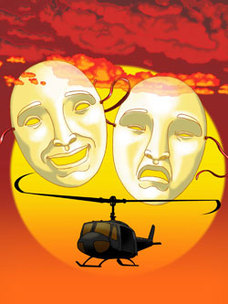 Theater J presents YELLOW FACE By David Henry Hwang Directed by Natsu Onoda Power Featuring Tonya Beckman, Mark Hairston, Stan Kang, Brandon McCoy,Sue Jin Song, Al Twanmo, Rafael Untalan, and Jacob Yeh January 29 - February 23, 2014 Click here to learn more and purchase tickets. About the play: The lines between truth and fiction blur with hilarious and moving results in David Henry Hwang's unreliable memoir. Fresh off his Tony Award win for M. Butterfly, Hwang leads a community protest against the casting of a famous white actor as the Eurasian pimp in the original Broadway production of Miss Saigon, condemning the practice as "yellowface." His position soon comes back to haunt him when he mistakes a Caucasian actor for mixed-race, and casts him in the lead Asian role of his own new play. When Hwang discovers the truth, he tries to conceal his blunder by passing the actor off as a "Siberian Jew." As Hwang struggles to ‘save face’ amidst family politics, international intrigue and government investigations, he explores timeless questions surrounding cultural identity, dual loyalty, and responsibility. A 2008 Pulitzer Prize finalist staged by the visionary director of Astro Boy and God of Comics. “A laugh-out-loud comedy, and an unexpectedly poignant odyssey of self-discovery" --New York Sun Running time: 2 hrs 10 minutes with 15 intermission 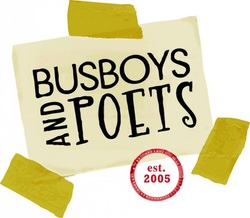 Busboys and Poets is a community gathering place. First established in 2005, Busboys and Poets was created by owner Anas "Andy" Shallal, an Iraqi-American artist, activist and restaurateur. After opening the flagship location at 14th and V Streets, NW (Washington, DC), the neighboring residents and the progressive community embraced Busboys, especially activists opposed to the Iraq War. Busboys and Poets is now located in four distinctive neighborhoods in the Washington Metropolitan area and is a community resource for artists, activists, writers, thinkers and dreamers. 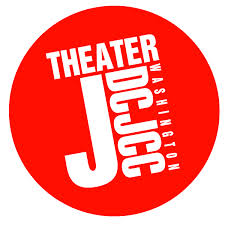 Theater J produces thought-provoking, publicly engaged, personal, passionate and entertaining plays and musicals that celebrate the distinctive urban voice and social vision that are part of the Jewish cultural legacy. Acclaimed as one of the nation’s premier playwrights’ theaters, Theater J presents daring contemporary work alongside spirited revivals and is a nurturing home for the development and production of new work by major writers and emerging artists exploring many of the pressing moral and political issues of our time. Dedicated above all to a pursuit of artistic excellence, Theater J takes its dialogues beyond the stage, offering an array of innovative public discussion forums and outreach programs which explore the theatrical, psychological and social elements of our art. We frequently partner with those of other faiths and communities, stressing the importance of interchange among a great variety of people wishing to take part in frank, humane conversations about conflict and culture. |
My BlogI'm a playwright, dramaturg, and teaching artist. It is here where you'll find my queries and musings on life, theater and the world. My posts advocate for diversity, inclusion, and equity in the American Theatre and updates on my own work. Please enjoy!
Categories
All
Archives
June 2020
Reading List
|
